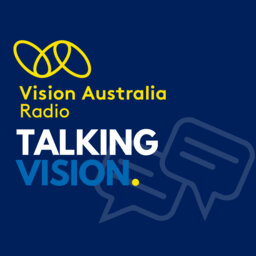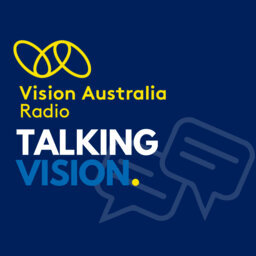Talking Vision 723 Week Beginning 8th of April 2024
We head over to Adelaide this week to speak with Sam Rickard and Lizzie Eastham from Studio 1 on Vision Australia Radio Adelaide, as they tell us all about how they're going on their 100K Your Way challenge over the month of April.
Later in the show Frances is back with a Reader Recommended, and we finish up with some news and information.
In 1 playlist(s)
Talking Vision by Vision Australia Radio
Vision Australia Radiothon is on now. Donate via www.varadio.org and make a tax deductible donation …Social links
Follow podcast
Recent clips

Talking Vision 819 Week Beginning 16th of February 2026
28:59

Talking Vision 818 Week Beginning 9th of February 2026
28:10

Talking Vision 817 Week Beginning 2nd of February 2026
27:37
 Talking Vision by Vision Australia Radio
Talking Vision by Vision Australia Radio